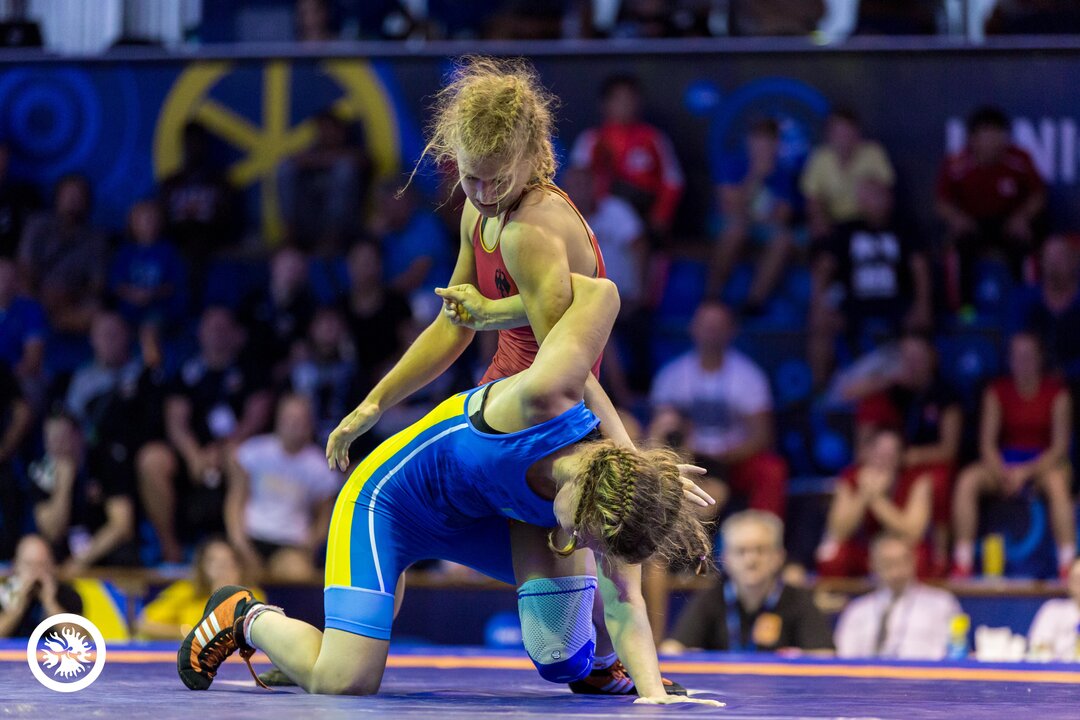PHNOM PENH, Cambodia (December 2) --- From July 18 to November 30, 2024, the Development of the National Sports System (DNSS) program in Cambodia marked a significant milestone for the growth of wrestling in the country. Led by UWW Educator Martin Hauck (USA), this program provided a comprehensive approach to enhancing coaching, athlete development, and refereeing in Cambodia. Through a mix of workshops, camps, and tournaments, the initiative sought to foster collaboration, education, and enthusiasm for wrestling at all levels.
During the program, more educational opportunities were created for coaches, athletes, and referees. A key highlight was a youth national tournament held during the second visit, which connected athletes and coaches from several provinces, promoting competition and collaboration. Plans were made to make this event an annual tradition, further strengthening the sport’s foundation in Cambodia.
The program objectives included observing and assessing the national team during a high-performance camp in July, educating coaches on long-term athlete development, and organizing a one-day seminar in a neighboring province to introduce wrestling games to youth. Meetings with the Cambodia Wrestling Federation leadership helped establish a roadmap for future development and in-person training sessions.
Key deliverables included:
- Running camps and seminars for coaches and athletes, focusing on practical and theoretical education.
- Creating a Cambodian Coaches Course Curriculum and teaching topics such as emergency action planning, practice structuring, periodization, talent identification, and connecting traditional Cambodian wrestling with Olympic styles.
- Organizing a youth national tournament and camp, which saw participation from almost all provinces, showcasing significant growth on and off the mat.
- Promoting communication, education, and resource-sharing platforms for ongoing development.
The DNSS program not only strengthened technical skills but also built excitement and unity within the Cambodia Wrestling Federation. With a focus on collaboration among referees, coaches, athletes, and stakeholders, this initiative laid the groundwork for sustained development and opportunities in wrestling throughout Cambodia.
The Development of National Sports System (DNSS) program, conducted in Cambodia from July 18 to November 30, 2024, marked a significant step toward developing wrestling in the country. Led by UWW Educator Martin Hauck (USA), the program aimed to address critical gaps in coaching, athlete development, and organizational structure while fostering growth and enthusiasm for the sport nationwide.
 Over 100 participants competed in the national youth tournament during the Development of the National Sports System (DNSS) program in Cambodia.
Over 100 participants competed in the national youth tournament during the Development of the National Sports System (DNSS) program in Cambodia.
Program Activities and Achievements
The DNSS program implemented a range of initiatives to address these challenges and lay the groundwork for wrestling’s growth:
- Youth Development and Competitions:
The program introduced a national youth tournament, drawing over 100 athletes from nearly all provinces. This event not only provided a platform for competition but also fostered excitement and collaboration among athletes, coaches, referees, parents, and stakeholders.
- Coaching Education and Communication:
Coaches participated in comprehensive seminars covering emergency action planning, athlete development, periodization, video analysis, coaching females, and practice structuring. A centralized communication platform on the Cambodia Wrestling Federation website improved collaboration among coaches and clubs, helping connect rural and urban areas.
- Structured Athlete Development:
New frameworks for athlete progression were introduced, enabling coaches and athletes to engage in long-term development cycles. Practical sessions during national team camps allowed coaches to apply their learning while working with athletes from across the country.
- Safety and Inclusivity:
Emphasis on mental health, recovery practices, and safety protocols improved understanding and implementation of safe wrestling environments.
- Stakeholder Engagement:
Meetings with the Cambodia Wrestling Federation leadership resulted in a shared vision for growth, including plans to strengthen partnerships, increase opportunities, and enhance stakeholder representation.
Key Outcomes
The program’s efforts led to several important outcomes:
- Improved communication and collaboration within the wrestling community.
- Significant growth in coaches’ theoretical and practical knowledge.
- Increased participation and retention among athletes and coaches.
- The successful execution of Cambodia’s first youth national tournament.
- The identification of Coach Sotheara as a future leader for the sport.
Path to Success
The success of wrestling in Cambodia will depend on sustained education, participation, and collaboration. With improved communication, increased opportunities, and the emergence of local leaders like Coach Sotheara, the sport is well-positioned for growth. The DNSS program has laid a strong foundation, and with continued effort, wrestling in Cambodia has the potential to thrive at both national and international levels.
By fostering education, inclusivity, and passion, this program has not only addressed immediate needs but also set a vision for wrestling’s bright future in Cambodia.

 df. Marina ZAKSHEVSKAYA (KAZ) -by VPO1, 6 - 2-3.jpg) Ellen RIESTERER (GER) scores a 6-2 semifinals win over Marina ZAKSHEVSKAYA (KAZ). (Photo by Max Rose-Fyne)
Ellen RIESTERER (GER) scores a 6-2 semifinals win over Marina ZAKSHEVSKAYA (KAZ). (Photo by Max Rose-Fyne) 

 Over 100 participants competed in the national youth tournament during the
Over 100 participants competed in the national youth tournament during the
Share your thoughts.
Comments